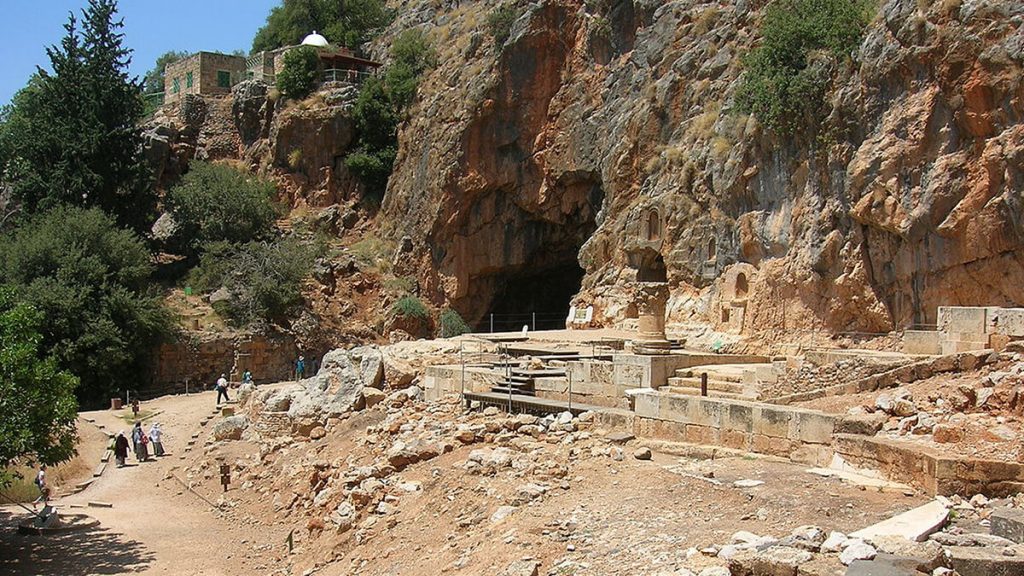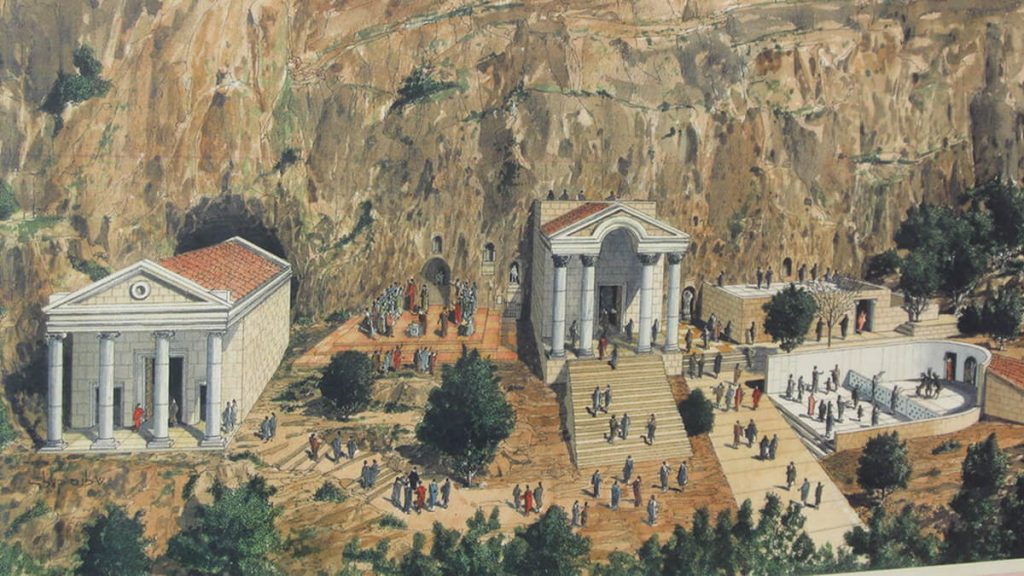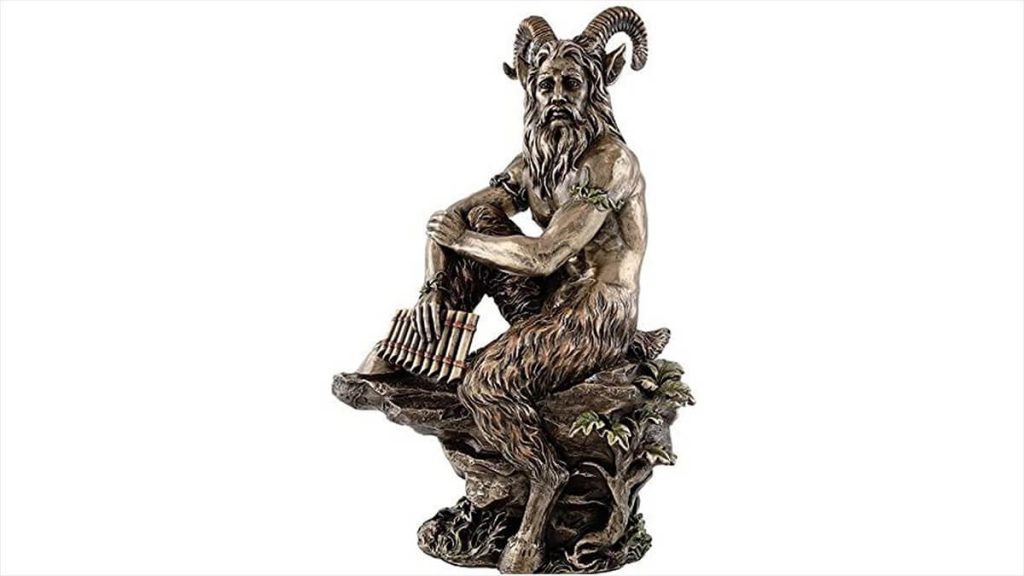Shhh…Tell No One
Everybody wants fame and notoriety, supposing that it is a requirement to be heard. Interestingly, Jesus often worked towards the opposite. At first it seems strange that Jesus would perform miracles and then instruct the recipients of those miracles to tell no one, but when you look closely at His mission, His reasons are revealed. Jesus understood something that too few seem to understand today—fame kills.
Matthew 8:1-4
1 When he was come down from the mountain, great multitudes followed him. 2 And, behold, there came a leper and worshipped him, saying, Lord, if thou wilt, thou canst make me clean. 3 And Jesus put forth his hand, and touched him, saying, I will; be thou clean. And immediately his leprosy was cleansed. 4 And Jesus saith unto him, See thou tell no man; but go thy way, shew thyself to the priest, and offer the gift that Moses commanded, for a testimony unto them.
Matthew 9:27-31
27 And when Jesus departed thence, two blind men followed him, crying, and saying, Thou son of David, have mercy on us. 28 And when he was come into the house, the blind men came to him: and Jesus saith unto them, Believe ye that I am able to do this? They said unto him, Yea, Lord. 29 Then touched he their eyes, saying, According to your faith be it unto you. 30 And their eyes were opened; and Jesus straitly charged them, saying, See that no man know it. 31 But they, when they were departed, spread abroad his fame in all that country.
In His early ministry, Jesus worked to curtail the fame of His power and ministry, because fame kills. These are only two of several instances where Jesus directed recipients of miracles not to tell anyone about what happened to them, and as we move forward, we will discover others and the profound revelation hidden in the details.
The Method Behind the Supposed Madness
Isn’t it interesting that Jesus was born in a manger or that He came through the tribe of Judah rather than priestly lineage of Levi? These humble beginnings of Christ were not by accident but by design. From the moment He entered the earth realm, His approach was to avoid His religious celebrity, not build it. Ignorant of Christ’s methods, the disciples wondered why Jesus declined to take advantage of His opportunities to achieve stardom, and eventually began to reveal His methods.
John 7:1-9
1After these things Jesus walked in Galilee: for he would not walk in Jewry, because the Jews sought to kill him. 2 Now the Jew’s feast of tabernacles was at hand. 3 His brethren therefore said unto him, Depart hence, and go into Judaea, that thy disciples also may see the works that thou doest. 4 For there is no man that doeth any thing in secret, and he himself seeketh to be known openly. If thou do these things, shew thyself to the world. 5 For neither did his brethren believe in him. 6 Then Jesus said unto them, My time is not yet come: but your time is alway ready. 7 The world cannot hate you; but me it hateth, because I testify of it, that the works thereof are evil. 8 Go ye up unto this feast: I go not up yet unto this feast: for my time is not yet full come. 9 When he had said these words unto them, he abode still in Galilee
In this conversation of John 7, the disciples revealed their carnal way of thinking through the questions they asked Jesus. They figured He, of all people, should had righteous reasons to pursue the fame. After all, conventional wisdom would suggest that if anyone deserves to be a celebrity, it should be the prophesied Savior of Israel—of all of mankind. Thankfully, the Lord doesn’t operate by conventional wisdom but by the transcendent wisdom God.
Jesus reply to the disciples was, “my time is not yet come.” During the feast of tabernacles, an event where the who’s who of Israel were sure to congregate into the perfect audience for Jesus to claim His fame, the close brethren of Jesus suggested that He make a grand statement. But by His wisdom, Christ declined the proposal. In this moment Jesus makes clear to us, though probably not to his disciples at that time, that drawing attention to Himself would ultimately lead to His death. In other words, it would be His fame that would kill Him.
Furthermore, the word of God is true and can’t return void. So, according to the curse spoken by God the garden, all things of the flesh must die, even if it means the body of Jesus. If Jesus were to establish His kingdom on earth while operating in a body of flesh, it would be wasteful, and that’s not a quality attached to God’s name.
Romans 7:18
18 For I know that in me (that is, in my flesh,) dwelleth no good thing:
As mentioned by Paul, there is truly no good thing in the flesh, but the difference between Jesus and the rest of us is that He perfectly conquered the evil within it. Jesus was perfect, but His physical body was not. Like all human beings, He suffered, felt pain and dealt with the temptations of the flesh that housed His perfect spirit, and in His usual teaching fashion, He made every effort to establish that truth.
Matthew 19:16-17
16 And, behold, one came and said unto him, Good Master, what good thing shall I do, that I may have eternal life? 17 And he said unto him, Why callest thou me good? there is none good but one, that is, God: but if thou wilt enter into life, keep the commandments.
Recognizing the lack of spiritual perspective in His followers, Jesus took every opportunity to teach them that the person they saw with their carnal eyes wasn’t the perfect image of God, but the body He temporarily operated within. Even today, this revelation is missed by those who debate about the physical appearance of Jesus. The point was—and continues to be—the power of His Holy Spirit within.
As imperfect humans, we have a tendency to operate by the limited physical perspective, and that is why the disciples encouraged Jesus to do things that were against the plan and timing of God. Jesus said His time was not yet come, because His primary purpose was to die for us. His humble yet powerful presence was certain to bring about the bitter jealousy that would lead to His crucifixion. So, until that appointed time, He worked to keep His fame at a minimum.
Everybody Wants Fame and a Platform
Power and influence are akin to money and wealth when it comes to its potential dangers, and too much of it is can be destructive to those who possess it without wisdom. Today, even social media superstardom has become a “thing”, and the desire of many to create their own audience or become famous is a real problem that is often unprepared for. With success comes scrutiny, and with increased popularity comes heightened persecution. Jesus knew this, and He knew when the time of His death would come. So, in much of Christ’s early ministry, He made a conscientious effort to balance positive and negative attention, thereby delaying His death until God’s appointed time.
Additionally, and most importantly, those who operate with humility and truth are the ultimate cause of conviction upon those who don’t. To walk in true righteousness causes those with selfish and evil intentions to either repent or defend their sinful ways with growing resentment. It is only a matter of time before those who desire to hold on to their pride will want to eradicate others whose humility constantly exposes them in it. This was the truth that Jesus knew of the religious leaders of that day, and it is also the case with many today. This is why fame in the name of the true Jesus is nothing an understanding person delightfully pursues.
Nothing exposes one man’s pride like another man’s humility.
You can’t help but wonder how today’s well-known religious figures would have handled these same situations. If they were able to perform miracles similar to Jesus, would they use Christ’s wisdom by making every effort to keep their flesh in subjection? Would they subdue their own notoriety in favor of God’s glory or run to every mass gathering and take every opportunity to draw crowds unto themselves? If we’re honest, many have already made their tendencies clear.
Today, the problem with many preachers is that they want attention for attention’s sake, or they seek influence without thinking about the vitriol that comes with the Gospel’s message. By nature, the message of Salvation is abrasive, because it challenges people to surrender their prideful agenda and selfish will in order to receive grace. Without an awareness of the evil and iniquity in the hearts of evil doers, one will place himself directly in Satan’s line of fire before they are able to sustain their righteousness. Jesus was aware of His own disciples unpreparedness, so His wisdom also shielded them from the murderous hate that filled the religious leaders. Without the Holy Spirit within them, they were sure to fail as Peter later demonstrated by denying Jesus three times. Similarly, in a lack of preparation, too many ministers and ministries “die” chasing premature popularity. They simply aren’t ready for the attacks of the world nor are they equipped to defend righteousness with forgiveness and love. In some cases, the building can even be full, but the approval of the Lord departs after a church has caved to the demands of lawless world.
1 Peter 5:5-9
5Likewise, ye younger, submit yourselves unto the elder. Yea, all of you be subject one to another, and be clothed with humility: for God resisteth the proud, and giveth grace to the humble.
6Humble yourselves therefore under the mighty hand of God, that he may exalt you in due time: 7Casting all your care upon him; for he careth for you. 8Be sober, be vigilant; because your adversary the devil, as a roaring lion, walketh about, seeking whom he may devour: 9Whom resist stedfast in the faith, knowing that the same afflictions are accomplished in your brethren that are in the world.*
There are some who truly want to spread the loving message of faith, and there are others who simply want to be glorified by their followers. In the end, all intentions are exposed by the scrutiny that comes with notoriety. If your motives are pure and honest, then your persecutors are exposed, and your legacy/ministry lives even beyond you. But if your motives are impure, then your prosecutors appear justified, and your legacy/ministry dies when you do. And this is not just a physical death. A successful attack on your reputation or integrity can lead to the diminished effectiveness of your message, and potentially the spiritual condemnation of your soul.
Fame is not required for successful kingdom work.
The bright lights are unnecessary, because love quietly speaks volumes. Historically, God has always done more with less, because His glory, grace and ability is magnified by the lack of ability in the vessel. When we can’t, and God still does, all glory goes to Him. God would rather use the humble servant than the prideful one. If He uses an exalted vessel, it is typically to demonstrate His power by humbling them first.
Humility is a gift by which one is able to deflect the spotlight of men towards the glory of God.
In fact, when you really observe the works of Jesus, you realize that humility could even be considered a divinely given skill. It is the ability to cause people to see Jesus and not ourselves. Many of our so-called idols and celebrities love to give glory to God, vocally, but the majority of their fans still worship them. True humility is recognizable, because those who possess it make you recognize that there is something different about them—that there is an authority and power within them that cannot be a result of anything physical but of God. Authentic humility demonstrated is the ultimate display of boldness, because it refuses to give flesh credit for a work of the Lord. Consider Daniel and Joseph as examples. Even Jesus said it is my Father who doeth the works in me.
John 14:8-10
8Philip saith unto him, Lord, shew us the Father, and it sufficeth us. 9Jesus saith unto him, Have I been so long time with you, and yet hast thou not known me, Philip? he that hath seen me hath seen the Father; and how sayest thou then, Shew us the Father? 10Believest thou not that I am in the Father, and the Father in me? the words that I speak unto you I speak not of myself: but the Father that dwelleth in me, he doeth the works.
So, how should we regard our own spiritual position and gifts?
1 Peter 4:10
As each one has received a special gift, employ it in serving one another as good stewards of the manifold grace of God.
1 Corinthians 4:7
For who makes you so superior? What do you have that you did not receive? And if you did receive it, why do you boast as though you did not?
Jesus warned his disciples (and us) about exalting their flesh, yet many still seek fame. The Bible tells us to “humble ourselves” and the Lord will “exalt you in due season”. This means that God understands and sees when we are ready to be exalted to any level, and only He knows when we can handle it without being destroyed by it.
The Gates of Hell
Now, let’s take a detailed look at the appointed season when Jesus knew it was time to make himself known. As we read scripture, it becomes obvious that His approach changes.
Matthew 16:13-27
13When Jesus came into the coasts of Caesarea Philippi, he asked his disciples, saying, Whom do men say that I the Son of man am? 14And they said, Some say that thou art John the Baptist: some, Elias; and others, Jeremias, or one of the prophets. 15He saith unto them, But whom say ye that I am? 16And Simon Peter answered and said, Thou art the Christ, the Son of the living God. 17And Jesus answered and said unto him, Blessed art thou, Simon Barjona: for flesh and blood hath not revealed it unto thee, but my Father which is in heaven. 18And I say also unto thee, That thou art Peter, and upon this rock I will build my church; and the gates of hell shall not prevail against it. 19And I will give unto thee the keys of the kingdom of heaven: and whatsoever thou shalt bind on earth shall be bound in heaven: and whatsoever thou shalt loose on earth shall be loosed in heaven. 20Then charged he his disciples that they should tell no man that he was Jesus the Christ.
Jesus Predicts His Death and Resurrection
21From that time forth began Jesus to shew unto his disciples, how that he must go unto Jerusalem, and suffer many things of the elders and chief priests and scribes, and be killed, and be raised again the third day. 22Then Peter took him, and began to rebuke him, saying, Be it far from thee, Lord: this shall not be unto thee. 23But he turned, and said unto Peter, Get thee behind me, Satan: thou art an offence unto me: for thou savourest not the things that be of God, but those that be of men.*
After yet another demonstration of affirming power, Jesus again encourages His disciples to tell no one about what they experienced, but this time the situation is a bit different. First, let’s observe the most important and often overlooked aspect of this dialogue between Jesus and Simon Peter, and that is the physical place where they were—Caesarea Philippi.


These images show Caesarea Philippi, the setting where the well-known conversation between Christ and Peter occurred. The first picture shows modern day Caesarea Philippi located in Golan Heights. The large cavernous cutout in the mountain is the grotto regarded by ancient pagan worshippers as The Gates of Hades. The second illustration shows how this same area might have looked in Jesus’ day with a temple sitting in front of the grotto. Looking at the geographical area reveals that Gates of Hell that Jesus mentioned were not just metaphorical, but it was a literal place thought to be a passageway to the underworld. In fact, there are many places around the world, even today, that are thought to be gates of hell. (SEE MORE INFORMATION ABOUT VARIOUS GATES OF HELL HERE).
There are more interesting details about this place of Peter’s revelation. Here, specifically at these gates of Hades where Jesus and Peter conversed, the Greek God Pan was worshipped.

The God Pan is so disgusting and vile that you’re hard pressed to find images of him that aren’t incredibly offensive. In ancient Greek mythology, he is the god of the wild, companion of nymphs and god of rustic, impromptu music. But music isn’t the only thing he’s impromptu about. He is also affiliated with wild and spontaneous sex which is why he is regularly depicted with an erected penis. Ironically, the word “panic” derives from Pan’s name. Initiated by the Greeks, Pan and Pan worship was later accommodated and continued by the Romans that ruled during the time of Christ. Caesarea Philippi was the name given to the region in honor of the Roman Emperor Augustus, but it was formerly called Paneas in honor of Pan.
In the spirit of the pagan god worshipped there, followers participated in all kinds of lude and detestable sexual acts. Some have even dubbed it the red-light district of Jesus’s day. Animals were thrown into the grotto in worship to Pan, and it is also believed that children and babies were sacrificed there. The Gates of hell, aptly named, was an area full of the worst kinds of unimaginable evil, and interestingly, the place where the identity of Jesus was revealed to Simon Peter.
As these details unfold, so do the powerful reasons for Jesus taking Peter there to reveal His identity. Here at the base of Mt. Hermon, in Caesarea Philippi and the epicenter of wicked activity, Jesus stood before the Gates of hell and made the famous declaration, “Upon this Rock I will build my church.” Now the question must be asked, to what rock was Jesus referring? To use a modern idiom, Jesus words were like a mic drop—masterful play on words. He took Peter’s name (Cephas), which means rock, the metaphorical symbol of His own strength and nature (Psalm 89:26) as the “Rock of our salvation” and the literal rock upon which they stood and wrapped them up in one bold statement. With one phrase, He said three things: He would build his church upon himself as the chief cornerstone, He would initiate it on the strength of a Holy-Spirit filled Peter at Pentecost and He would establish it in a power that would overthrow even the worst works darkness. Hallelujah!
Then, as if that isn’t enough revelation packed into one event consider this: Jesus had, much earlier, demonstrated that He knew what He would do by changing Simon’s name to Peter. Jesus was demonstrating both His eternal knowledge and power to reverse the works of Satan within man.
John 1:42
42 And he brought him to Jesus. And when Jesus beheld him, he said, Thou art Simon the son of Jona: thou shalt be called Cephas, which is by interpretation, A stone.
In the initiating moment of his discipleship, Simon’s name was changed to Peter, but why? Jesus knew exactly what His future purpose would be, but still, there’s even more. Simon, who’s name means “he has heard,” is the Greek form of the Hebrew name, Simeon, and that is significant in relationship to Israel’s history which Jesus was certainly knowledgeable of. In the days of Jacob’s sons, it was Simeon whose murderous aggression towards Shechem caused his entire tribe to be cursed.
Genesis 49:5-7
5Simeon and Levi are brethren; instruments of cruelty are in their habitations. 6O my soul, come not thou into their secret; unto their assembly, mine honour, be not thou united: for in their anger they slew a man, and in their selfwill they digged down a wall. 7Cursed be their anger, for it was fierce; and their wrath, for it was cruel: I will divide them in Jacob, and scatter them in Israel.
Ironically, but intentionally, the “Simeon Peter” of Jesus day possessed the exact same murderous aggression. Remember it was he who chopped off the ear of the high priest’s servant that came to take Jesus captive.
John 18:10
Then Simon Peter having a sword drew it, and smote the high priest’s servant, and cut off his right ear. The servant’s name was Malchus.
None of these connections are accidental. Simon’s name change to Peter through the word of Jesus was an encrypted spiritual message that God was about to establish His redemptive power. So, standing on the rock of the gates of hell, Simon who had now been converted to Peter, stood as a sign that Jesus had come to reverse the curse of sin’s aggression in man. And not only did he come to reverse it, He came to save the worst of mankind from bondage to their aggressive, sinful nature, and use their passion to invigorate His church! Again, hallelujah!
Simon Peter is literally a name that reflects the man’s conversion. “He who hears” was made “the rock” the stood firm, and Simon Peter would lead the alpha church forward in the power and authority of the Holy Spirit. Even the boldest of bad actors can be changed by the power of Jesus to be used for God’s glory. Now, on a side note…
ABOUT PETER PAN…(Excerpt from upcoming book Jacob’s Inheritance) On a bit of a side note, the famous story popularized by Disney entitled, “Peter Pan” is a strangely twisted recognition of this encounter between Jesus and Peter. Aside from the obvious name references, Pan from the modern story shares numerous similarities to the devilish pagan god. The half human, half animal appearance, the flute as a an instrument of choice, the promotion of released inhibitions and even the best friend “Faun/Faunas” are all shared. In spite of these undeniably similar characteristics, the extremely dark undertones of this supposed children’s story have been downplayed so that an underlying evil is presented favorably. If the name, Simon Peter reflects a transformation from sinner to saint, then Peter Pan is a blasphemous attempt to deny the work of Jesus and disregard His reversal of our fate. This a frightening reminder to be careful of the content we subject ourselves and our children to.


Out of all of all places Jesus chose to “build his church,” he chose the gates of hell (hades). By doing so, Jesus proclaimed that His intent was to raise a generation bold enough to stand against sin, especially the sin of sexual perversion and immorality.
Another interesting read on Caesarea Philippi http://chrisedmondson.blogspot.com/2017/06/gates-of-hell-caesarea-philippi.html?m=1
As if the works of Satan weren’t enough, Israel’s leader’s participated and aided in seducing their own people. In this northern region of Israel sits Dan, the nearby city where Jeroboam built the idols of Baal that seduced the people of Israel away from Jerusalem. Yet here in this moment, in this region, Jesus changed His course of action with a bang. He stood boldly and made His deity known in the heart of Satan’s territory.
Raising A Rock
Jesus goal was to erect a temple of lively stones built on Himself, the chief cornerstone of us all. Peter was one of many who form the church, the dwelling place of God, and each of us are equipped with testimonies of encounters that we are always reminded of the greater power that lies in Jesus. Immediately after Peter’s revelation was the mount of transfiguration.
Matthew 17:1-9
1 And after six days Jesus taketh Peter, James, and John his brother, and bringeth them up into an high mountain apart, 2 And was transfigured before them: and his face did shine as the sun, and his raiment was white as the light. 3 And, behold, there appeared unto them Moses and Elias talking with him. 4 Then answered Peter, and said unto Jesus, Lord, it is good for us to be here: if thou wilt, let us make here three tabernacles; one for thee, and one for Moses, and one for Elias. 5 While he yet spake, behold, a bright cloud overshadowed them: and behold a voice out of the cloud, which said, This is my beloved Son, in whom I am well pleased; hear ye him. 6 And when the disciples heard it, they fell on their face, and were sore afraid. 7 And Jesus came and touched them, and said, Arise, and be not afraid. 8 And when they had lifted up their eyes, they saw no man, save Jesus only. 9 And as they came down from the mountain, Jesus charged them, saying, Tell the vision to no man, until the Son of man be risen again from the dead.
Peter’s reaction was natural and probably the reaction any person would have had—fear. But Jesus said be not afraid, and that is what He is saying to His followers even today.
Be not afraid
Giants and their armies always stand in the way of God’s promise to His people. It was that way with David and Goliath; Sodom and Gomorrah and the mobs of sexually perverted men; The Canaanites and the Rephaim (Giants) that frightened the people of Israel away from the promised land; Pharaoh and his armies; The Pagan God Pan in Caesarea Philippi, sitting next to Dan and the worship of Jeroboam’s idols. Today, it is pop-culture and it’s idols of physical and spiritual fornication, sexual perversion and lawlessness. These are the giants that Christ’s followers face today. These are the things that pose the greatest threats to the gospel, but as the words of Jesus ring, they will not prevail against the church.
The politically-correct media and entertainment-supported culture of lasciviousness, immorality and overall lawlessness is—and always has been—the giant that seeks to intimidate the children of God. The seduction and wickedness of Jezebel seeks to threaten believers into silence through fear, but Jesus has spoken, be not afraid. David had a bag full of stones, but He only needed one. We, the remnant of the Lord are a bag smooth stones, but one Jesus has already slayed the Giant. He has already won the victory!
